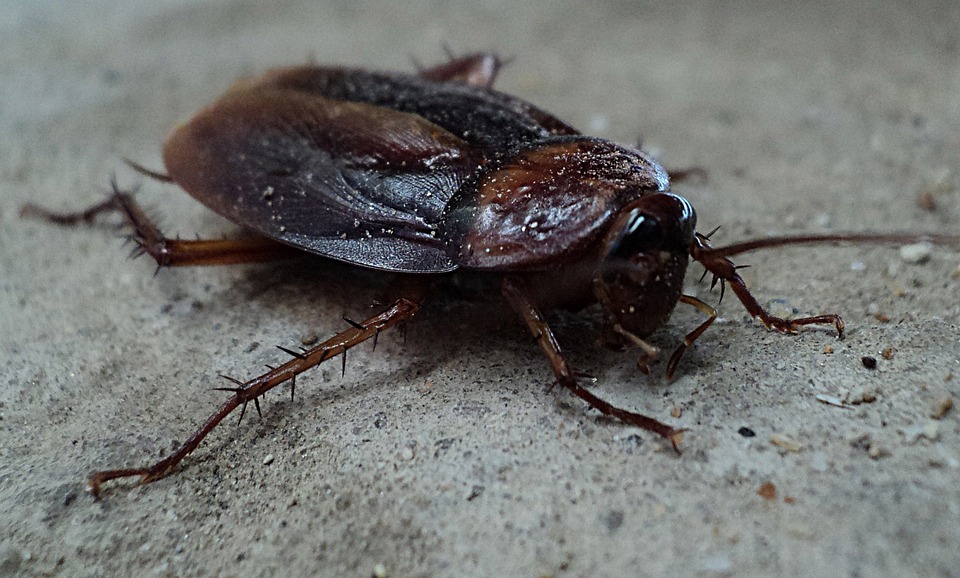How to Become Your Home's Pest Defender
When it comes to pests, it doesn't matter if we live in a village or in a city because they will fly and climb up to the 50th floor if you are not careful enough, and shortly they will become your most unwanted roommates!
Common houseflies can carry up to 100 distinct types of diseases. A single house fly is thought to have up to 33 million germs in its gut and 1.9 million bacteria on its body. Some of these organisms cause polio, dysentery, salmonella, diarrhea, and other illnesses in humans.
While professional pest control services are the best method to keep these nasty pests at bay, you can discover some valuable tips to offer you peace of mind below.

Preventing Pests
Preventive steps are the best way to protect your property. This is an essential step in pest prevention and routine cleaning. Here are some things you can do to keep pests out of your building:
- Take special care of foods that attract bugs, such as sweets, crumbs, sugar drinks and more.
- Remove garbage as often as possible.
- Double-check if plumbing of your house. Eliminate water accumulating anywhere in the house, especially underneath the refrigerator or indoor plants.
- Pest control is made more difficult by clutter, which gives them space to hide and breed. Get rid of items like cardboard, magazines, and a stack of newspapers.
- Seal off any openings or hiding spots used by bugs. Caulk cracks and crevices, such as those behind cabinets. Fill any cracks around pipes with steel wool.
For comprehensive pest prevention and control, consider contacting Turner Pest Control in Melbourne. Their expertise can help ensure your property remains pest-free and well-protected.
When looking for the most efficient ways to protect your household, staying informed about local pest behavior can make a real difference. Regular inspections, seasonal preparedness, and implementing effective pest control for your home are crucial steps in maintaining a clean and safe environment. Making proactive choices now can save you from major infestations down the line.
Plants for Pests out of Your Home
Fortunately, we have a few super-hero plants to keep pests out of our homes. Bonus, they smell fantastic too!
Basil and Mint
Basil and mint are great in Italian dishes and tea. Insects, however, find their odor unpleasant. Plant these herbs in your sunny kitchen or entrances. These fragrant herbs repel flies, mosquitoes, and fruit flies.
Sage and Rosemary
Sage and rosemary are other beautiful plants that help repel insects. Burning their dry leaves helps control mosquitoes, flies, and other pests. Small bundles of dried herbs in a sachet may repel silverfish and moths.
Citronella Plant and Lemongrass
These green gems have a function — to repel mosquitoes. You may enjoy the scent, but bugs hate it. Crush a leaf and spread it on your skin to repel mosquitoes. These plants may be grown near doors or windows to repel flying insects.
Lavender
Lavender is renowned for its elegance and smell. This plant smells tremendous and repels insects, and the plant's oil may repel flies, moths, beetles, mosquitoes, and fleas.
Essential oils that can effectively drive pests away
Well, essential oils are used today to keep your body calm and relaxed and to get rid of pests. Here are some effective essential oils that can keep pests away.
Peppermint Oil
Along with having a pleasant fragrance, peppermint oil naturally wards off pests like ants, spiders, mosquitos, and even mice. Shake and spray a water container with 10 to 15 drops of peppermint essential oil over doors, windows, and vents.
Neem Oil
This oil kills over 200 insect species while being safe for people and animals. Spray it on areas where bugs are more likely to gather around.
Flypapers and Insect tramps
These two are considered pest control devices, known as fly ribbon, fly strip, fly capture tape, or flycatcher. A fly-killing tool made of paper coated with pleasantly perfumed, highly sticky, and occasionally toxic substance catches flies and other flying insects when they fall onto.
And when the situation gets worse, and we have to use chemicals, our care must be increased to the highest level.
- Outdoor chemicals are not made indoors, so do not use them in any way possible. They can be dangerous because their toxins will remain longer inside than outside.
- Make no assumptions that twice as much is better. Make sure to read and follow label directions
- Don't store pesticides in food containers and vice versa. Because children and adults accidentally have been poisoned by consuming pesticides stored in food or beverage containers. And no matter how thoroughly you wash the containers, they could still be contaminated with pesticide remnants and do great harm.
If you hire any professional to assist you with pest control, ask them to identify and address the issue's root before using pesticides. For instance, you might need to fix a leaky toilet or any crack in the wall that can help bugs enter your home.